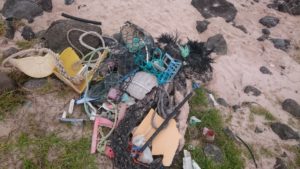Mon, 18.6.2018 | 12:15-13:45 | SFG 2210
Alf Hornborg (2017) Artifacts have consequences, not agency: Toward a critical theory of global environmental history. European Journal of Social Theory 20(1), 95-110.
This article challenges the urge within Actor-Network Theory, posthumanism, and the ontological turn in sociology and anthropology to dissolve analytical distinctions between subject and object, society and nature, and human and non-human. It argues that only by acknowledging such distinctions and applying a realist ontology can exploitative and unsustainable global power relations be exposed. The predicament of the Anthropocene should not prompt us to abandon distinctions between society and nature but to refine the analytical framework through which we can distinguish between sentience and non-sentience and between the symbolic and non-symbolic. The incompatibility of posthumanist and Marxist approaches to the Anthropocene and the question of agency derives from ideological differences as well as different methodological proclivities. A central illustration of these differences is the understanding of fetishism, a concept viewed by posthumanists as condescending but by Marxists as emancipatory.
